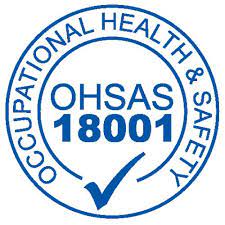Importance Of Air Filters
Air Filtration is of vital importance
The air is composed of 78% nitrogen, 21% oxygen, and 1% various gases and particles. The latter are of various kinds: rare gases, carbon dioxide, fine particles, salts, and exhaust gases from road traffic and industry. If this 1% seems small, it is however sufficient to determine the quality of the indoor air (IAQ) and to affirm that the air we breathe is healthy or unhealthy. The operation of a filter may seem simple in theory, but it is in practice a product of extreme complexity. The filter fibers must allow enough air to pass without resistance while retaining the harmful fine particles.
Filters serving human beings
Every day human being inhales and exhales about 20 kilograms of air. 20 kg is an impressive weight, especially when you know that man absorbs daily 1.5 kg of food and 2.5 kg of water. People are very careful about what they eat and drink. The public authorities provide regular advice on this subject. But the quality of the air we breathe is just as important and deserves as much attention.
Fine particles affect health
The harmful impact of fine particles on health is brought to light every day in newspapers, on the radio, or on television. Air pollution and fine particles have become a global health issue as they are harmful to health. The sources of production of fine particles are numerous: road traffic, industry, combustion engines, and bio-industry are examples. Unfortunately, the human body is ill-equipped to absorb these fine particles.
The largest fine particles – those larger than 5 microns – can be filtered by the natural human filters of the nose and lung trachea. But the smaller ones penetrate deep into the lungs and can seriously affect our health. Children, the elderly, and people with respiratory infections are particularly susceptible.
Sick Building Syndrome
Did you know? The air can be 7 times more polluted inside than outside.
Unfortunately, we spend 80% of our time indoors. Many infections result from poor indoor air quality (‘indoor conditions’). This is also the case in the workplace and this can lead to sick building syndrome or Sick Building Syndrome. This disease is explained by the presence of fine particles inside buildings. It manifests itself in a variety of ways: difficulty concentrating, difficulty breathing, headache, drowsiness, eye and skin irritation, and fatigue.
The easiest way to fight this syndrome is to protect people through air filtration. A careful selection of filtration solutions ensures good indoor air quality (IAQ). For each specific situation, USHA Filters will provide you with solutions to guarantee good indoor air quality (IAQ). Air filters manufactured by USHA Filters are used in commercial buildings, hotels, museums, or conference centers.
Air Filtration at the service of processes
In addition to protecting people, air filtration ensures the proper functioning of industrial processes. Depending on the type of process, filtration requirements differ. In addition, many of our products are used for gas turbines in the nuclear, agri-food, and pharmaceutical industries.
Nuclear Industry
It is essential to the global energy supply as well as to the defense sector. Air filters play a key role in nuclear power plants, uranium processing plants, research sites, and nuclear waste management. Nuclear air filters meet the most stringent environmental requirements for maximum reduction of radioactive pollution.
Gas Turbines
The primary function of the filter in an air intake system is to protect the gas turbine and other rotating machinery against external impurities. Fine particles (> 5 μm) can cause erosion. The smallest of them (below a micron size) foul the blades and have a detrimental effect on the operation of the turbine. For optimum performance, it is imperative to provide a perfectly balanced filtration system.
Production of printed circuits
This industrial sector involves very strict requirements. In general, products are manufactured in a clean room and are extremely sensitive to external influences. The slightest presence of impurities in the air, even of small size, can cause enormous losses during the manufacturing process. Pre-filters, fine filters, and HEPA filters guarantee maximum air quality in a clean room.
Pharmaceutical Industry
During the manufacturing process, an air of bad can have serious consequences. Contamination of pharmaceuticals can affect drug performance. This situation is a health risk for users’ health.









